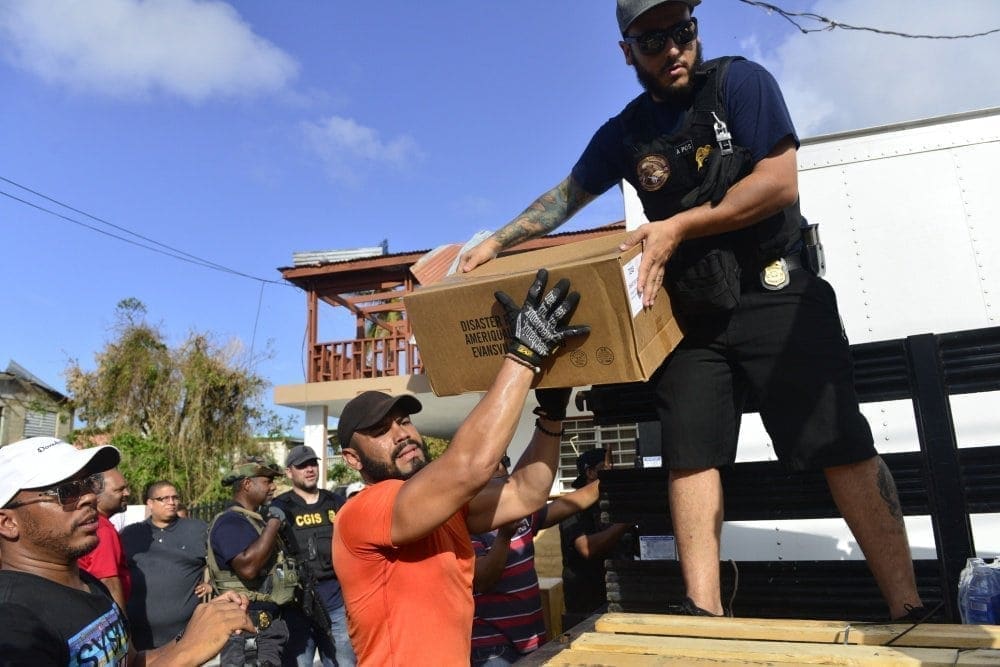
Hurricane Maria struck Puerto Rico as a powerful Category 4 hurricane, leaving widespread damage in its wake. Photo: U.S. Coast Guard
- The Emergency Prescription Assistance Program (EPAP) has been activated for Puerto Rico. This program, managed by the Department of Health and Human Services, allows “community pharmacies to process claims for prescription medications, vaccines, and limited durable medical equipment (DME) provided to individuals who are from a disaster area declared by the President and who do not have any form of health insurance coverage.”
- Florida Governor Rick Scott Gov. Rick Scott declared a state of emergency in every Florida county on October 2 to help the state provide services to Puerto Ricans fleeing the devastation of Hurricane Maria. In addition, Scott announced disaster relief centers will be set up at Orlando International Airport and in Miami to help those seeking refuge in Florida.
- NACDS partner Healthcare Ready is activated for Hurricane Maria. Rx Open, an interactive map that helps patients and providers find nearby open pharmacies in areas impacted by the disaster, is activated for Puerto Rico. Healthcare Ready is helping route and coordinate supply donations. If your pharmacy has a healthcare supply need or your pharmacy is able to donate supplies, please email: Alerts@HealthcareReady.org.
- The office of the Comisionado De Seguros released an order to medical treatment insurers requiring a grace time period on premium payments and suspension of preauthorization requirements for the disbursement of subscription medication.
- The Food and Drug Administration has helpful information on insulin storage in a natural disaster on the agency’s website.
- The Centers for Disease Control and Prevention provided the following information to NACDS to share:
- Do not drive through flooded areas and standing water. Turn around, don’t drown!
- Avoid Carbon Monoxide (CO) poisoning. Keep the generator at least 20 ft outside door/window. Don’t grill inside. Fumes can kill.
- Use bottled, boiled, or treated water for drinking, cooking, and personal hygiene.
- Throw away perishable foods—like meat, seafood, milk, and eggs—that have not been refrigerated properly due to power outages or have come in contact with floodwater.
- If it’s hot, move to a cool place, take sips of water, and take cool showers.
- Throw away any drugs that may have been contaminated with floodwater.
- If you are pregnant, drink lots of clean water and get plenty of rest—especially when you are sick.
- Call SAMHSA’s Disaster Distress Hotline at 1-800-985-5990 or text TalkWithUs to 66746 if you need counseling support. For assistance in Spanish you can call or text HABLANOS at 1-212-461-4635.
Hurricane Maria caused dangerous and destructive high winds, flooding, heavy rain, and storm surges. Now, people affected by the storm face risk from carbon monoxide poisoning, downed power lines, mold, and other threats. Recovering from hurricanes can be difficult mentally and physically.
Get more tips on how you can stay safe after a hurricane in English and Spanish.